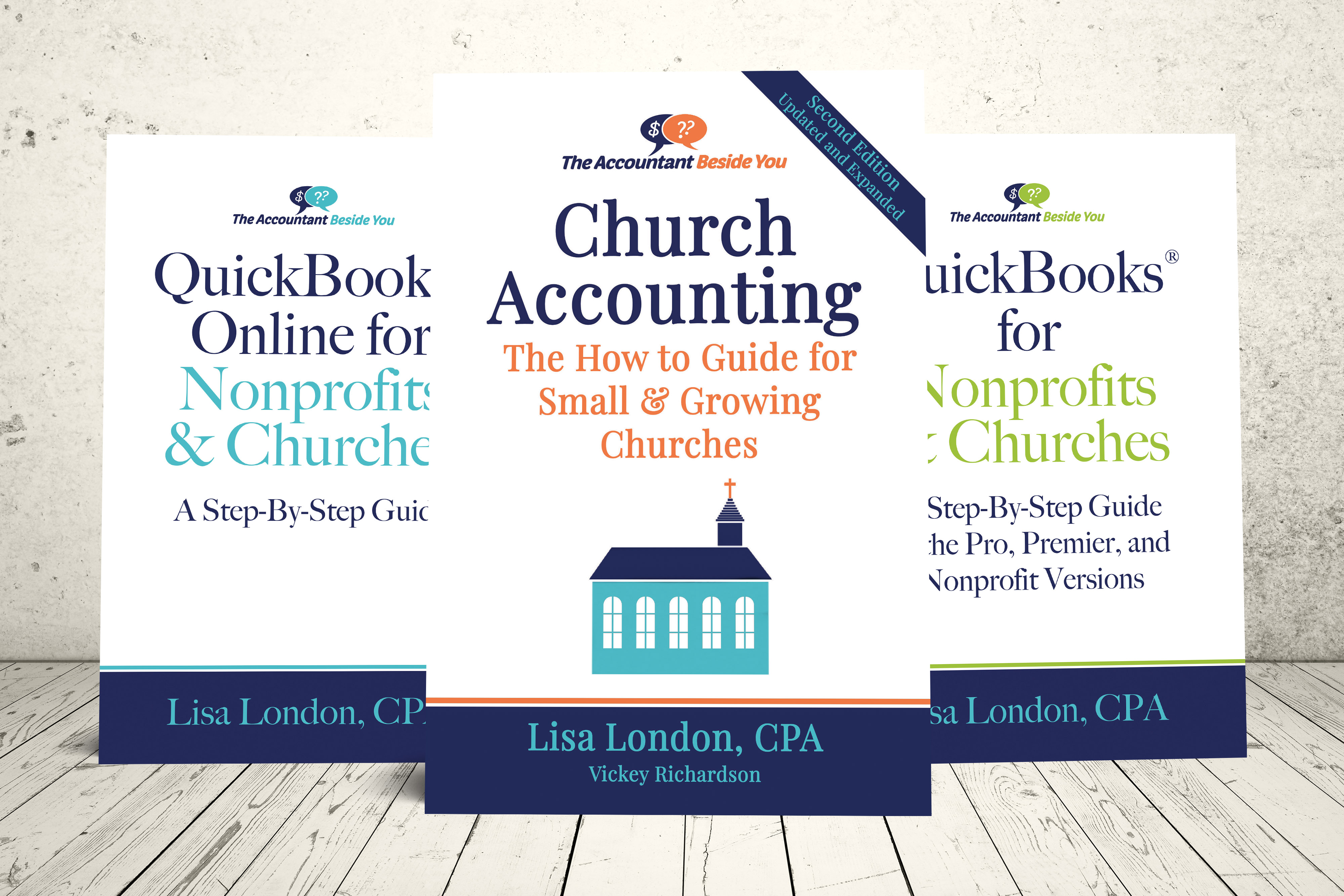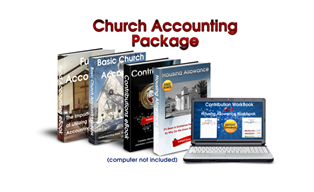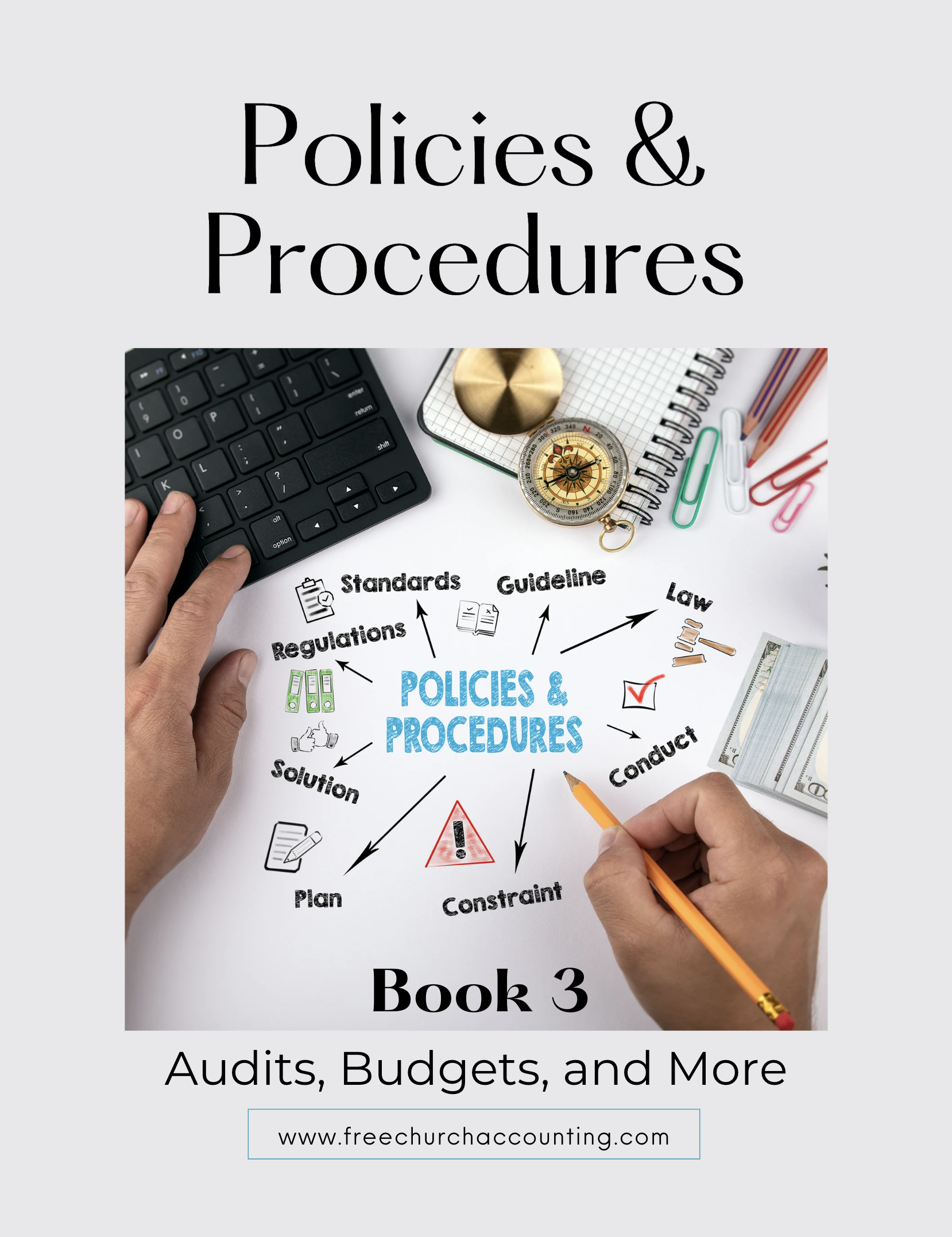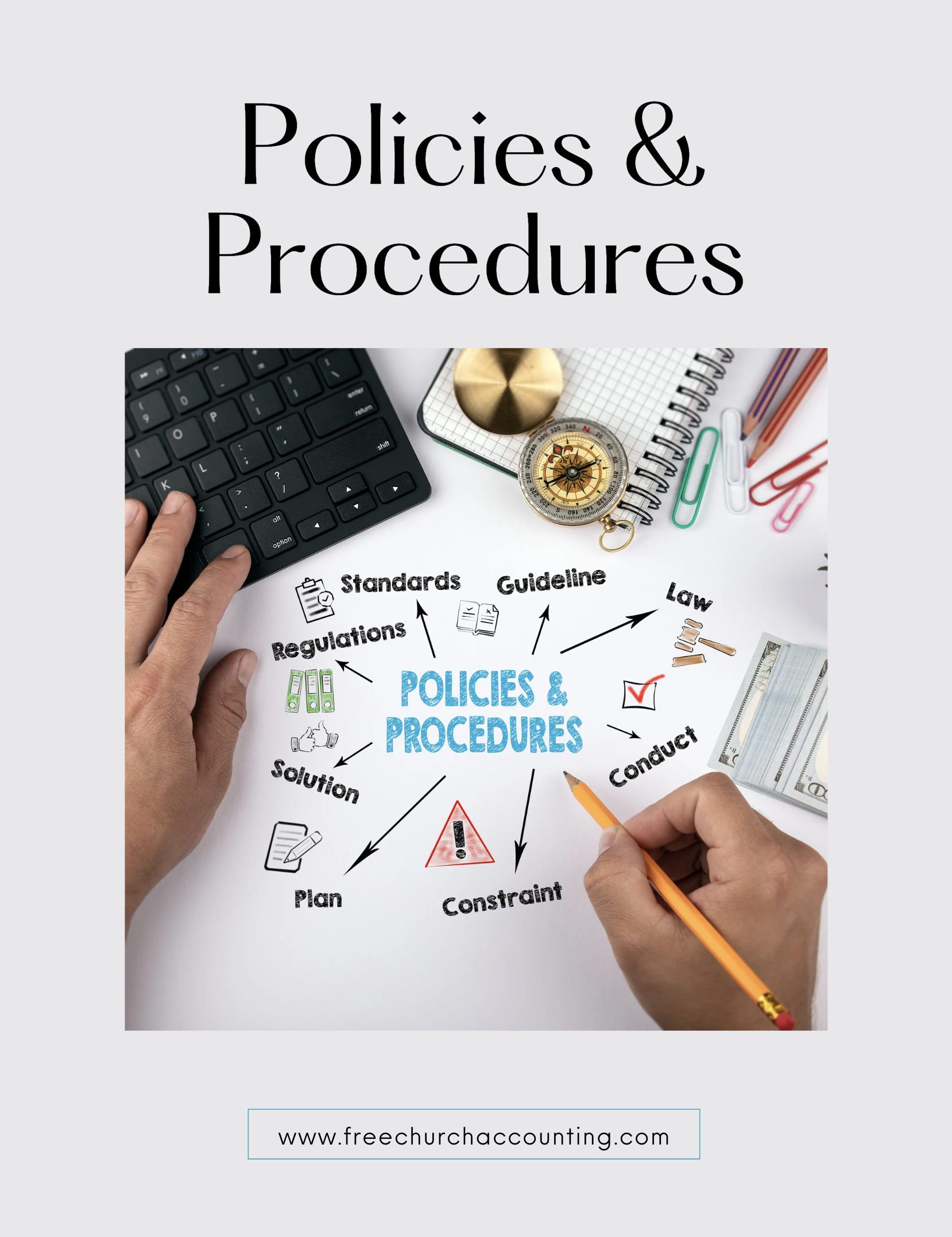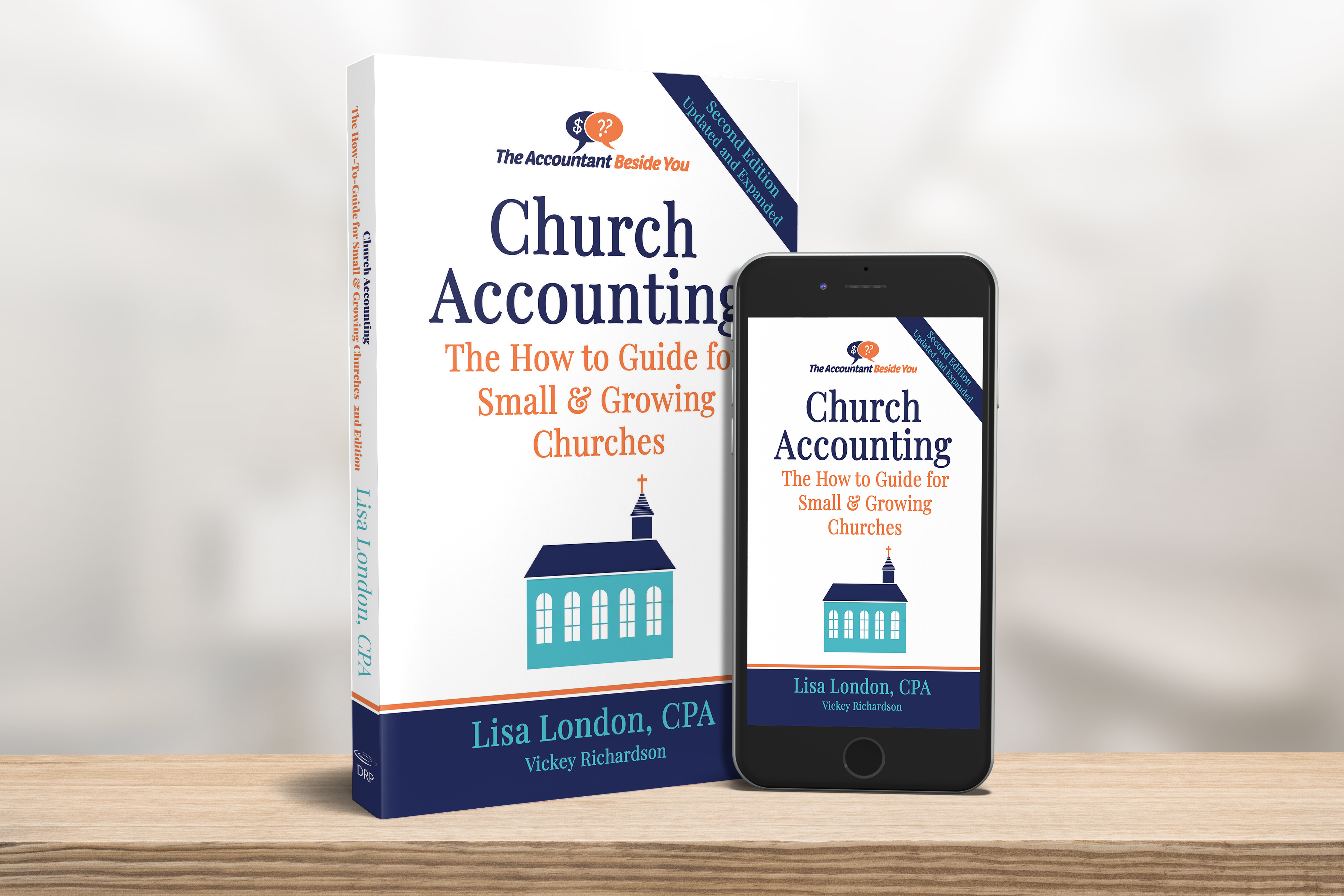How to Create a Church Budget
Creating a church budget can be challenging. A budget is an action plan for the ministry and therefore a very important part of your church's overall financial health.
Below are some key points in setting up a budget for your church.

Coupon!
Here is a 10% discount code for all the ebooks, spreadsheets, and packages on this site:
FCA
Note: click on "PACKAGES" in the top navigation bar for a list of all of the ebook and spreadsheet packages on this site!
There are basically three budget classifications. Deciding which one is the right one to use for your church will depend on your church's individual needs.
1. Incremental budgeting, often called line item or traditional budgeting, is based on the previous year’s expenditures.
Most churches follow this budgeting process.
Incremental budgeting takes this year's budget as the basis for next year's budget and makes adjustments to each item for anticipated cost increases or activity changes.
2. Zero-based budgeting starts every program and activity at zero dollars.
3. Program budgeting evaluates all programs and activities based on effectiveness at their current levels of funding and on their potential.
See more on these budget classifications in Book 3 Audits, Budgets, and More in the Policies and Procedures series.
The Policies and Procedures Package includes an ebook on budgets and audits. It includes details on the different types and categories of budgets and budget tips.
This ebook is included in the Policies and Procedures Package. However, you can purchase it by itself for only $7.95 by clicking the ADD TO CART button below!
The Audits, Budgets, and More ebook is also part of a larger "Policies and Procedures" Package" that is packed full of valuable information and for a limited time you can purchase all 5 ebooks and 8 policy templates for only $32.80
The second step should be to establish a target budget amount for the upcoming year.
This could be based on funding, pledges received, past levels of giving and projected growth, assessed needs or a combination of these criteria.
Church Budget Categories:
- Income (all funds coming into the church falls into this area. Often churches will set up several line item under the "income" category to include different types of income such as tithes, building fund donations, missions donations, interest earned, etc)
- Personnel (salaries, benefits, etc.).
- Administration (operating expenses).
- Facilities and Equipment (utilities, insurance on property, maintenance)
- Outreach (missions, evangelism, social events, etc.).
- Direct ministry (the various ministries of the church such as children, youth, counseling, adult, men, women, etc.).
- See more on budget categories and budget tips in Book 3 of the Policies and Procedures series

I use traditional (incremental) budgeting for my church and most of my clients. Aplos has a wonderful budgeting module and QuickBook Online (QBO) is pretty easy to input as well.
We do most of them in October, so my first step in preparing a church budget is to run a Statement of Activity from October of the prior year to September of the current year. I export it into a spreadsheet and add a column for the budget. By having a year worth of income and expenses in the first column from the Statement of Activity, it is much easier to anticipate the new year's budget.
Be aware that in QBO you will need to do several budgets if you are using classes to track designated funds. I do a "Total" one with everything in it and then do smaller ones for the different ministries and programs. Same thing for Aplos.
Do generate a Budget to Actual report EVERY month! This is a very useful tool and will provide you with invaluable information.
Church Budget Tips:

I have noticed a common trend - people tend to vanish when the topic of budget preparation arises=)
Perhaps this disappearing act is due to the time-consuming nature of budgeting, especially in our current economic climate, where estimating income and expenses can be quite challenging.
To make this task more manageable and prevent your colleagues from vanishing, here are some budgeting tips to consider:
- Divide and Conquer: Establish general yearly goals but focus on creating more detailed budgets on a monthly or bimonthly basis. Monthly budgets can provide a clearer picture as donations fluctuate, and one-time annual expenses can be accurately reflected.
- Stay Flexible: Remember that budgets are estimations and not set in stone. Regularly review and adjust your budget based on actual figures. If certain expenses exceed projections, reallocate funds accordingly.
- Monitor Cash Flow: Keep a close eye on your cash flow and ensure you have enough funds to cover all financial obligations. Adjust expenses if donations do not align with projections, and consider investing surplus funds wisely.
- Seek Expert Advice: Consult with a CPA, financial advisor, or banker to develop a tailored budgeting system for your organization.
Remember, once your budget is finalized, keep it accessible and review it regularly. Utilize monthly budgets as effective financial management tools to anticipate donation trends and prepare for lean periods.
Church Accounting Package
A set of 2 ebook packages that covers the following topics...
- Fund accounting examples and explanations
- Difference between unrestricted and restricted funds
- Best methods for tracking restrictive funds
- Explanations and examples of financial statements for churches and nonprofits
- Minister compensation and taxes
- Payroll accounting and its complexities
- Much more - Click here for details
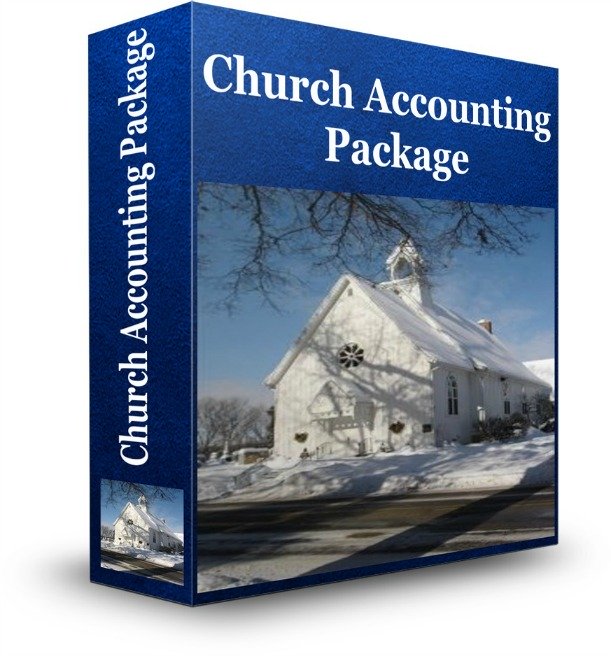
Tips on Cutting Church Budget Expenses:

Finances always are a delicate subject in any church or nonprofit. Without adequate funds, your organization cannot continue to minister effectively. Part of an effective ministry is meeting your financial obligations.
It is important to protect your organization's reputation in your community, to your bank, staff and vendors.
It is a sad situation when a church is not able to pay its bills on time or has to ask its staff members to hold their pay checks until after Sunday's offering or when more funds become available.
Here is some tips on cutting costs:
- Fundraisers: Delegate the organization of bake sales and car washes to the youth director to support youth ministry expenses. Consider convening a meeting with the church's ladies to establish a Fundraising Committee if one does not already exist. Most people are willing to contribute if asked. Avoid overburdening one or two individuals with all fundraising responsibilities to prevent burnout.
- Offerings: If contributions are decreasing, provide opportunities for giving at each service or event. While some churches collect offerings only once a week, not all members may attend that particular service. Encourage consistent giving by reminding members about the church's financial challenges during sermons and other communications. Emphasize the importance of their ongoing support in sustaining the church's activities.
- Spending Cuts: Small measures can make a significant impact, such as requesting donations of snacks from church members for meetings or events, ensuring lights are switched off when not needed, adjusting the thermostat, and encouraging the donation of unused supplies from the nursery, kitchen, and office by mem
So prepare your church budgets carefully and prayerfully. We are to be good stewards of the funds God entrusts to us, and part of that responsibility is to meet our financial obligations in a timely manner.
There is a whole chapter devoted to church budgets in Lisa and my book "Church Accounting - The How to Guide for Small and Growing Churches"
The Budgeting for Churches chapter include:
- The process necessary to prepare a budget
- How to do monthly budgeting
- The difference between budgets and forecasts
- How to use your forecast for analyzing cash flow
See more details on this valuable resource book!
Use coupon code "FCA" for a 10% discount!
Comments...
Enter your title of your tip, idea, comment, or question in the text box below.
Keep the title as short as possible, but interesting enough to make people want to click on your title.
Then click on the link below it that says: Click here to see the rest of the form and complete your submission.
Write your post. Elaborate and give all the details necessary to properly convey your meaning or question,
Please be aware that with my bookkeeping company, building and maintaining websites, and my volunteer work at my church, I cannot possibly answer and comment on every submission.
However, your opinions, questions, and comments are very valuable to me...so I will try to answer questions when I can, but I am relying on the goodness of others to help here:)
Important! Comments used to go live without my approval. I would have liked to keep it this way, but there are some that take advantage of that. As a result of their blatant disregard of my request to stop posting their spam on this site... I now must approve comments first. I apologize for this inconvenience and will post your comments asap.
Budget Questions and Comments
Do you have a question or comment regarding the budgeting issues churches and nonprofits face? Share it!
Archive of Budget Comments
The following comments, tips, and Q/A were provided by FreeChurchAccounting's generous readers:
Is approval needed on any unbudgeted items?
Our Ministry Council has no policy on how to manage unbudgeted items and wondered if anyone has a guideline. Do you have a maximum amount that you will …
calculating a line item amount expressed as a percentage of the budget
How do i calculate the amount of a line item based on a percentage?
For example we give 10% of our income to missions. What formula to i use to calculate …
Failure of budget to be approved
What happens if the church votes down the proposed budget, and a revised one can't be approved before the start of the new financial year?
Do you operate …
Church Year Budgeting
Our budget goes from Jan-Dec. Members vote on the budget in Dec which means the budget has to be completed in Nov. Do I go to the previous year say "Nov …
if expenditures go over budget, do you adjust the budget?
We have a VERY successful businessman who INSISTS that if we spend more on a given line item than the amount budgeted, we then MUST immediately increase …
Should funding a repair fund be included as a line item in the budget?
Should funding a Major Repair Fund be included as an expense line item in the budget? In other words, we have a separate savings account for major building …
per cent of budget that should be pastor total compensation
How much should the pastor/priest be paid in a 300 of less member church. Is there a percentage guideline?
Missions and capital campaign included when calculating percentages?
Our church has a general fund offering, and separate offerings for building improvement and missions. Should these other offerings be included when calculating …
Pastor Discretionary Fund
If we setup a discretionary fund that gives the pastor full and unrestricted discretion to distribute it. The total fund is considered taxable income. …
What % of budget is average for building maintenance and repairs?
WE are looking for a rule of thumb.
End of Year Accouunting
How do I apply expenses incurred this year, to the budget for the prior year?
For example, last year's budget (2014) has a line item for Missionary …
Church fellowships and dinners
What expense heading/title should be used to record food expenses for church dinners and meetings?
Also pastor does not receives a salary from church …
Startup Budget
What should the startup budget of a ministry be comprised of?
What is a three tier budget
I would like to know what is a three tier budget and what it consists of.
YE Mission Funds
Through the year, donors designate funds for Missions. If these funds are not used in a given year, how should these funds be carried forward to the next …
Carry Over Added to Budget?
Does carry over or cash on hand at year's end have a place in the next year's budget?
Every year the question comes up about how to account for cash …
Setting up budget for part-time employee salary or stipends
Should employee salary or stipends for positions that are only a few hour per week (like organist) be part of the personnel part of the budget, or in the …
Budgeting a pastor's salary in a developing country
When trying to factor non-monetary offerings in to the church budget, would it be best to liquidate them so as to factor the cash value in to the budget; …
Budget approval meaning!
Does budget approval by the church mean that every expense is approved. Does that automatically approve salary increases and etc.
Should a budget just …
Budget Income
How much percent of income should be for misc fund raising (such as bake sales)? For example if all our churches income through pledges and cash donations …
Income vs. Expenses
Does income vs. expenses be the same number in a budget? Or may the expenses be less than the income?
In my preliminary budget my income exceeds the …
Three Tier Budge
I am working on a school program where I have to create a three tier budget for a church. Do you have any samples?
Depreciation and annual budget
Should depreciation be included in the annual budget or left as an unbudgeted item since it is not a cash outlay?
I understand that it has to be expensed …
staff expenses percentage items
Do you include payroll processing fees in staff expenses in a church budget?
How much should the church hold in reserve?
I am the pastor of a small church. Our annual expenses are $60,000. We have no debt. We have a reserve fund of $74,000. So we have a reserve that is …
Designated monies reimbursing budget?
Our church spent 2000.00 in January 2010 from budgeted funds.
In August 2010, a donor contributes 2,000.00 designated for worship.
Does this mean …
Church Budget
Do you have to list the pay amount for each employee on the church budget report that's handed out to members during quarterly Financial meeting? Can that …
What Percentage of Budget is Average for Salaries
What is the average % of salaries in a church budget?
vickey's reply
There is no "easy" answer!
Dan Busby, CPA, states in his "Church and …
Budget tracking vs financial accounting
I am new on our church Budget/Finance Committee. The Financial Secretary produces: 1)A monthly Year-to-Date Budget Comparison and a monthly financial …
Church Budget Allocations for Outreaches
What is the ideal percentage should be allocated for church outreaches, missions and or ministries?
Vickey's reply
That would be determined …
Setting up a Budget for a Small Church
Need help on how to set up a budget for small church with 5 departments.
Vickey's Reply
Decide what type of budget you want to use.
…
The comments above are for general information purposes only and do not constitute legal or other professional advice on any subject matter. See full disclaimer.
